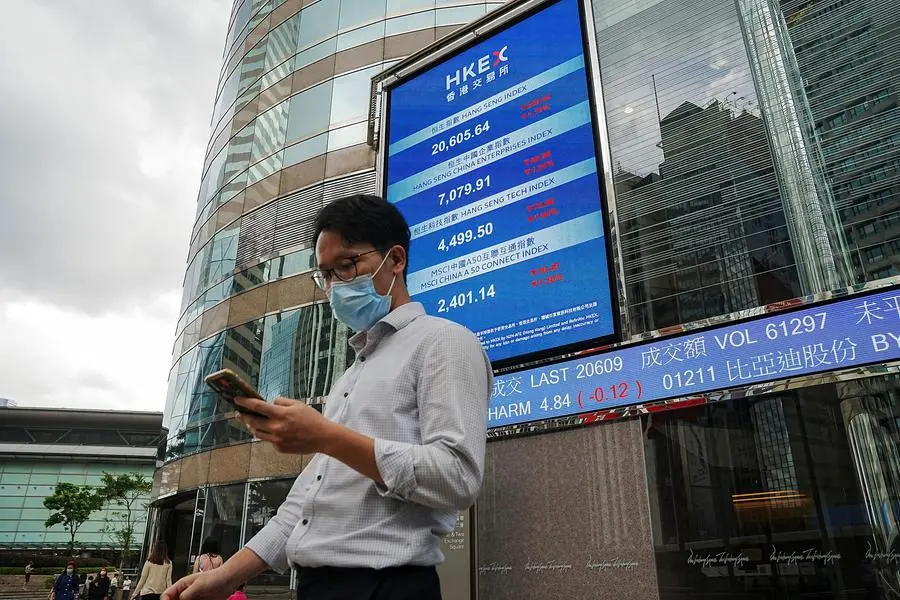
China’s stock and bond markets are sending a clear message to policymakers: further actions are necessary to restore investor confidence. Tuesday saw a continued decline in stocks, diminishing the gains from last week’s brief rally fueled by optimism surrounding a potential market rescue package. Concurrently, the benchmark 10-year bond yield plummeted to its lowest point in over two decades, suggesting that traders are betting on the People’s Bank of China (PBOC) to implement additional monetary stimulus to spur growth.
The liquidation of China Evergrande Group, once the country’s top property developer and now mired in debt, has cast a shadow over China’s real estate sector, exacerbating worries about the world’s second-largest economy. The bleak outlook is compounded by disappointing earnings from major companies and the re-emergence of geopolitical risks ahead of the US presidential election later this year.
Morgan Stanley strategists, including Jonathan Garner and Laura Wang, point out that the new lows in bond yields and the resumption of equity declines indicate market concerns that the current stimulus measures are insufficient to counteract the deflationary environment. They argue for a significant fiscal package focused on the consumer sector to address these issues.
In Hong Kong, Chinese stocks listed there, particularly the Hang Seng China Enterprises Index, experienced a sharp decline, making it one of Asia’s worst performers on Tuesday. The drop was partly driven by BYD Co., an electric vehicle giant whose profit fell short of expectations.
Mainland Chinese stocks also suffered, with the CSI 300 Index closing down 1.8%, despite overseas investors purchasing about 1.7 billion yuan ($237 million) of mainland shares on a net basis. Meanwhile, the 10-year bond yield dipped to 2.47%, the lowest since 2002, reflecting increased demand for safe-haven assets amid expectations of prolonged economic pressures from weak consumption and a downturn in the property market.
The recent downward trend in equities suggests that investors are likely to sell into any rallies unless Beijing introduces more decisive measures. While there was initial enthusiasm for the reported stock-market-rescue package and the PBOC’s reserve requirement ratio cut, this optimism was short-lived, as authorities did not follow through with additional interventions.
Kieran Calder, head of equity research for Asia at Union Bancaire Privee, emphasizes that investor confidence hinges on resolving the property sector crisis. He notes that current valuations reflect significant challenges, including self-inflicted damage to the tech and real estate sectors. The ongoing news underscores the complexity and persistence of the property crisis.
Beijing now faces the daunting task of regaining investor trust after a market rout that has erased over $6 trillion in value from Chinese and Hong Kong stocks since their peak in 2021. This slump underscores a structural shift, with both active and passive money managers turning away from the world’s second-largest stock market.
Compounding the negative sentiment towards Chinese stocks in Hong Kong is the city’s announcement of a planned national security law. This move has far-reaching implications for Hong Kong’s status as an international financial center.
Upcoming economic data is expected to show that China’s manufacturing sector remained in contraction for the fourth consecutive month in January. According to Daniel Tan, a fund manager at Grasshopper Asset Management in Singapore, while China’s recent measures may have provided some relief, a structural uplift requires more substantial action. He cautions that it might be premature to declare a bottom for China equities or assume a global increase in allocation to Chinese risk.
China’s financial markets are navigating a challenging landscape marked by economic downturns, policy uncertainties, and geopolitical risks. The actions taken by Chinese policymakers in the coming months will be crucial in shaping investor confidence and determining the trajectory of the nation’s economic recovery.
Featured image credit: Lam Yik via REUTERS
